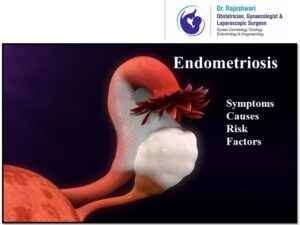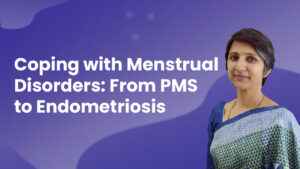When preparing for pregnancy, proper nutrition plays a crucial role in supporting both the mother and the developing baby. From preconception to the stages of pregnancy, a balanced and nutrient-dense diet lays the foundation for a healthy pregnancy and future. This guide will cover everything you need to know about a best diet for pregnancy, crafting a preconception meal plan, and the foods to eat before pregnancy to ensure optimal health.
Why Nutrition Matters in Preconception and Pregnancy
Many women focus on healthy eating during pregnancy, but preconception nutrition is just as important. The months leading up to pregnancy can significantly impact fertility, the baby’s development, and the mother’s overall well-being. A well-rounded preconception meal plan ensures that your body has all the nutrients it needs to support conception and early pregnancy.
Some of the key reasons to focus on preconception and pregnancy nutrition include:
- Supporting fertility
- Reducing the risk of birth defects
- Promoting healthy fetal growth
- Maintaining the mother’s health and energy levels
- Supporting proper immune function
By understanding the best diet for pregnancy and focusing on the right nutrients, you can create an ideal environment for conception and a healthy pregnancy.
Preconception Meal Plan: Preparing for Pregnancy
A preconception meal plan focuses on optimizing fertility and laying the groundwork for a healthy pregnancy. Here are the key nutrients and food choices to include:
1. Folate/Folic Acid
Folate is a B vitamin essential for DNA production and cell division, which is critical in early pregnancy. Folic acid, the synthetic form of folate, helps prevent neural tube defects in the baby.
Foods to eat before pregnancy rich in folate include:
- Leafy green vegetables (spinach, kale, and arugula)
- Legumes (lentils, chickpeas, and black beans)
- Fortified cereals and whole grains
- Citrus fruits
Tip: Include folate-rich foods daily in your preconception meal plan, and consider taking a folic acid supplement, as recommended by your healthcare provider.
2. Iron
Iron is crucial for creating hemoglobin, which transports oxygen in the blood. Women of childbearing age often have lower iron stores, making it essential to boost iron intake before pregnancy.
Iron-rich foods to eat before pregnancy include:
- Red meat (lean beef, lamb)
- Poultry (chicken, turkey)
- Dark leafy greens (spinach, collard greens)
- Fortified cereals
- Lentils and beans
Pairing iron-rich foods with vitamin C (found in citrus fruits, tomatoes, and bell peppers) enhances absorption.
3. Calcium and Vitamin D
Calcium supports bone health for both the mother and the baby. Vitamin D, on the other hand, helps the body absorb calcium effectively.
Key calcium-rich foods to eat before pregnancy include:
- Dairy products (milk, yogurt, cheese)
- Almonds
- Broccoli
- Fortified plant-based milk (almond, soy)
For vitamin D, opt for:
- Fatty fish (salmon, mackerel)
- Fortified foods (orange juice, cereals)
- Eggs
Consider getting regular sun exposure for natural vitamin D production.
4. Omega-3 Fatty Acids
Omega-3s, particularly DHA, support fetal brain and eye development. These fatty acids are also linked to reducing inflammation and promoting cardiovascular health.
Include these sources of omega-3s in your preconception meal plan:
- Fatty fish (salmon, sardines, trout)
- Flaxseeds and chia seeds
- Walnuts
If you’re not getting enough omega-3s from your diet, a fish oil supplement can be a good option, but consult your doctor first.
Best Diet for Pregnancy: Nutrients and Foods to Focus On
Once you conceive, shifting from a preconception meal plan to a best diet for pregnancy is crucial. The first trimester can be a particularly delicate time, as the baby’s organs begin to form. Here are the essential nutrients and the best foods to eat during pregnancy:
1. Protein
Protein is the building block for cells and is essential for the baby’s tissue and organ development. During pregnancy, your protein needs increase to support both you and the baby.
Great protein sources for a best diet for pregnancy include:
- Lean meats (chicken, turkey)
- Fish (low-mercury options like salmon and tilapia)
- Eggs
- Legumes (beans, lentils, peas)
- Dairy products
Aim to include a variety of protein sources in every meal.
2. Whole Grains
Whole grains provide energy, fiber, and important nutrients like B vitamins, which are vital during pregnancy for energy production and the development of the baby’s nervous system.
Foods to eat before pregnancy and during pregnancy include:
- Oats
- Brown rice
- Quinoa
- Barley
- Whole wheat bread and pasta
Whole grains also help prevent constipation, a common issue during pregnancy.
3. Fruits and Vegetables
Fruits and vegetables are nutrient-dense, providing essential vitamins, minerals, and antioxidants. They also contribute to healthy digestion due to their high fiber content.
Incorporate a wide range of colors into your diet to ensure you’re getting a variety of nutrients:
- Dark leafy greens (spinach, kale)
- Orange and yellow vegetables (sweet potatoes, carrots)
- Red fruits (tomatoes, red bell peppers)
- Berries (strawberries, blueberries)
Focus on seasonal produce to get the freshest and most nutrient-packed options.
4. Dairy
As mentioned earlier, calcium is critical during pregnancy for the baby’s bone and tooth development. Dairy products are rich in calcium, protein, and other important nutrients like phosphorus and magnesium.
Incorporate the following dairy products into your best diet for pregnancy:
- Milk
- Yogurt (particularly Greek yogurt for a protein boost)
- Cheese (opt for pasteurized varieties)
If you’re lactose intolerant or vegan, consider fortified plant-based alternatives such as almond or soy milk.
5. Hydration
Staying hydrated is often overlooked but is critical for a healthy pregnancy. Water aids in digestion, helps form amniotic fluid, and delivers nutrients to the baby.
Drink at least 8-10 glasses of water daily. You can also get hydration from water-rich fruits and vegetables, such as cucumbers, watermelon, and oranges.
Foods to Avoid During Pregnancy
While crafting the best diet for pregnancy, it’s equally important to know which foods to avoid. Some foods can pose risks to both the mother and the baby. Here are key items to eliminate from your diet:
- Raw or undercooked meats: These may contain harmful bacteria.
- Unpasteurized dairy products: They can carry bacteria like Listeria, which is harmful during pregnancy.
- High-mercury fish: Avoid fish like swordfish, shark, and king mackerel, which have high mercury levels that can affect fetal development.
- Raw eggs: They may contain Salmonella.
- Processed and junk food: These are often high in empty calories, sugar, and unhealthy fats, which can lead to unnecessary weight gain and complications.
Final Thoughts
Nutrition is a vital part of preparing for pregnancy and supporting a healthy baby’s growth and development. Whether you’re in the preconception phase or navigating the ups and downs of pregnancy, focusing on a nutrient-dense preconception meal plan and the best diet for pregnancy will go a long way in ensuring the well-being of both you and your baby. Eating a balanced diet filled with whole grains, lean proteins, fruits, vegetables, and healthy fats is the key to creating a strong foundation for your pregnancy journey.
Make sure to consult your healthcare provider or a nutritionist to tailor your diet to your specific needs, as each pregnancy is unique.




